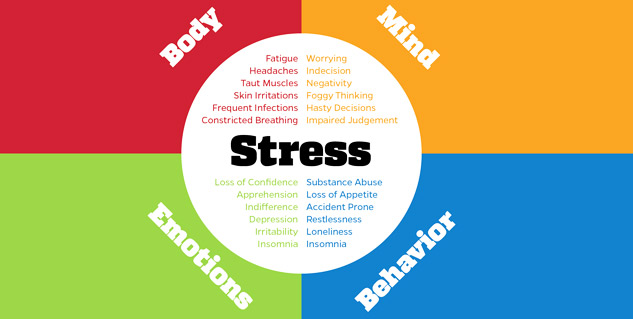
Have you ever noticed that you're restless or fatigued even when staying at home? The cause may not be work stress or sleep deprivation; it could be the persistent ambient noise at home. From television gossip and humming appliances to traffic rumble and mobile beeps, these sounds go unnoticed but can quietly raise cortisol, which is the body's primary stress hormone. Too much cortisol over the long haul can disrupt sleep, compromise immunity, and even play a role in heart disease. However, with some conscious adjustments, you can safeguard your calm and level your hormones.
Table of Content:-
So, we decided to reach out to our expert, Dr Vikram Vora, Medical Director and Chief Health Officer (Indian Subcontinent) at International SOS, and he explained to us how our home's background noise impacts cortisol levels and ways to correct it. Read ahead to know.
Why Background Noise Matters
“Noise is not just sound, it's an ongoing signal that your brain detects,” highlighted Dr Vora. Even when you think you've tuned out, your body remains slightly tense. This underlying tension can increase stress hormones without you even knowing it. Following are the ways it shows up:
- Increased cortisol levels
- Disrupted sleep (light sleep or frequent awakenings)
- Decreased concentration and productivity
- Moodiness or crankiness
Also Read: Ask The Expert: Will My Masking Habit Outlive The Pandemic?

Common Sources of Noise in Your Home Daily
Most houses are full of quiet, persistent noise. They sound normal, but collectively, they keep your stress response engaged. These include;
- TV or music constantly playing in the background
- Humming kitchen devices like washing machines or refrigerators
- Traffic or building noise creeping in through the walls
- Digital interruptions like phone notifications, pings, and rings
How Elevated Cortisol Impacts You
When noise keeps your cortisol high, your body pays the price. What feels like simple tiredness or moodiness could actually be the effect of stress hormones working overtime. Here’s how elevated cortisol impacts you, according to Dr Vora:
- Weakens your immune system over time
- Increases the risk of high blood pressure and heart strain
- Triggers anxiety and fatigue
- Slows down metabolism and may lead to weight gain

Ways to Correct It
“Small, regular adjustments can make a huge difference in how relaxed and well-rested you feel in the home. By eliminating intrusive noise and introducing calming sounds, you allow your body to recharge its natural equilibrium,” shared Dr Vora. Here are a few expert-approved ways to correct it:
1. Establish a Quiet Zone
Dedicate at least one room or one corner of the house to being quiet. Use curtains, carpets, and cushions to soundproof.
2. Manage Digital Sounds
Switch off non-essential notifications, place your phone on silent mode during resting time, and don't leave the TV or radio on just for ambient.
3. Incorporate Calming Sounds
Reassuring options such as nature sounds, white noise machines, or soothing instrumental music can cover up disruptive sounds and reduce stress levels.
4. Organise Appliance Use
Operate washing machines, dryers, or dishwashers during the day rather than in the evenings or nights, when your body requires calm for sleep.
5. Soundproof Smartly
If traffic noise is a problem in your house, spend money on noise-cancelling curtains, door seals, or double-glazed windows for long-term relief.
Bottomline
Home background noise can be harmless-looking, but it can creepily keep you stuck on high stress hormones, draining both your mind and body. By designing intentional quiet, balancing digital distractions, and adding soothing sounds, you can reduce cortisol, enhance concentration, and safeguard long-term health.
Also watch this video
FAQ
1. Could background noise actually impact my health?
Yes. Chronic exposure to low-level noise can increase cortisol, which further affects sleep, immunity, and cardiovascular health.2. Should I banish all noise in the house altogether?
Not necessarily. The objective is to cut down on interruptive noises. Soothing noises such as nature recordings or gentle white noise can really aid relaxation.3. What is the simplest way to begin cutting down on noise stress at home?
Start by disconnecting unnecessary digital notifications, reducing TV volume, and establishing quiet time at night.
How we keep this article up to date:
We work with experts and keep a close eye on the latest in health and wellness. Whenever there is a new research or helpful information, we update our articles with accurate and useful advice.
Current Version
Oct 02, 2025 18:05 IST
Published By : Tanya Srivastava
